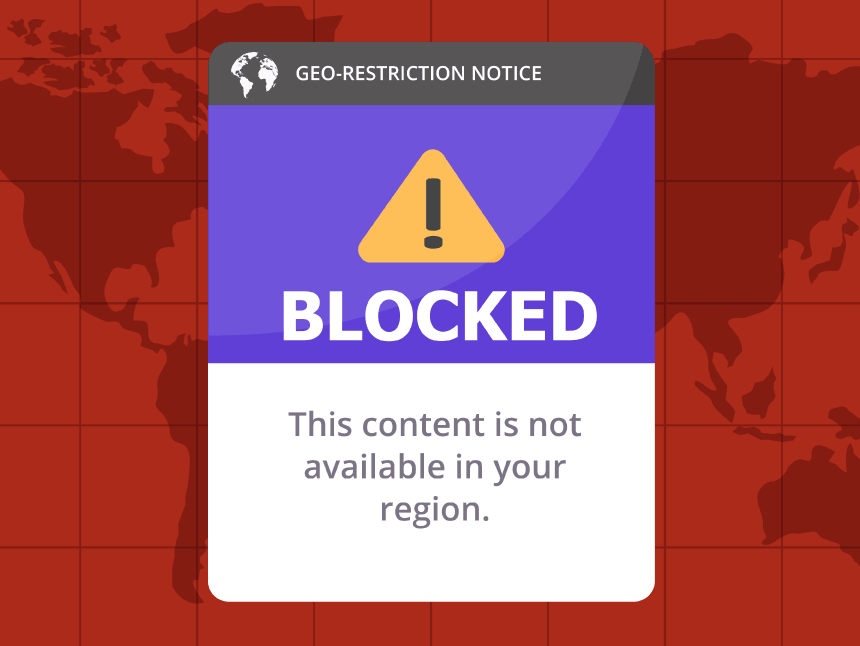Virtual Private Networks (VPNs) have gained immense popularity as a means to safeguard personal data and online activities. While VPNs provide a layer of encryption and anonymity, it’s essential to recognize that they are not a panacea for all cybersecurity threats. Understanding the limitations of VPNs is crucial for maintaining a comprehensive security posture in the face of evolving cyber threats.
The Role of VPNs in Cybersecurity
VPNs operate by creating a secure, encrypted connection between the user’s device and a remote server. This encrypted “tunnel” shields data from prying eyes, such as internet service providers (ISPs), hackers, or government surveillance. By masking the user’s IP address and encrypting data transmissions, VPNs offer enhanced privacy and anonymity, particularly when accessing public Wi-Fi networks or bypassing geo-restrictions.
Protection Against Eavesdropping
VPNs, or Virtual Private Networks, offer a robust layer of security that is particularly beneficial in today’s digital landscape where data breaches and cyber threats are common. One of their key advantages is the prevention of eavesdropping. This capability is critical as it protects sensitive information from being intercepted by malicious entities during transmission.
When you use a VPN, your internet traffic is routed through a secure server, which encrypts the data before it travels across the internet. Encryption involves transforming the original data into a coded format that can only be decoded or read by someone who has the right decryption key. Typically, VPNs use strong encryption protocols such as AES (Advanced Encryption Standard) with keys that are 256 bits long, akin to the standards used by governments and security experts worldwide.
This level of encryption ensures that even if cybercriminals manage to intercept the data packets, deciphering the contents would be extraordinarily difficult without the corresponding decryption keys. Essentially, the encrypted data appears as nonsensical, unintelligible gibberish to anyone who does not possess the authority to access it.
Furthermore, the use of VPNs helps maintain the confidentiality, integrity, and availability of data in several ways:
- Confidentiality: As already mentioned, encryption keeps the data hidden from unauthorized access.
- Integrity: VPNs can also include mechanisms to check that the data has not been altered in transit, ensuring that it reaches the recipient exactly as it was sent.
- Availability: By providing secure, remote access to networks, VPNs ensure that authorized users can access resources anytime, thus improving the productivity and efficiency of organizations.
In environments where sensitive communications are routine, such as in corporate settings, government agencies, or for individuals in restrictive countries, VPNs are invaluable. They not only safeguard personal and professional data against cyber threats but also help in circumventing geographical restrictions and censorship by masking the user’s IP address. This masking gives users the freedom to access the internet as if they were in a different location, which is particularly useful for accessing region-restricted services.
Overall, VPNs are a crucial tool for securing online activities and protecting sensitive data from the increasingly sophisticated methods used by cyber attackers to exploit vulnerabilities in information technology systems.
Bypassing Geo-Restrictions
VPNs serve as a powerful tool for overcoming geo-restrictions and censorship, features that enhance the online freedom of users and provide broader access to information and entertainment resources worldwide. These capabilities are especially valuable in an era where digital content—from news and information to movies and music—is often restricted based on geographic location.
Content providers like streaming services, news outlets, and gaming companies frequently enforce geo-restrictions due to licensing agreements or regulatory requirements. These restrictions can prevent users from accessing content that is available in one country but blocked in another. By using a VPN, users can connect to servers in different countries, effectively masking their real IP address with one that corresponds to the server’s location. This process tricks websites and online services into thinking that the user is accessing the internet from the server’s location, thereby bypassing geo-blocks and censorship.

For instance, a user in Asia might connect to a VPN server in the United States to access American streaming services like Netflix or Hulu, which offer a different selection of shows and movies than in their home country. Similarly, a European user might use a VPN to access streaming sports events that are available only in specific regions outside their own due to broadcasting rights.
Moreover, in countries where the government imposes strict internet censorship, VPNs are crucial for maintaining access to uncensored information. In these scenarios, VPNs help users reach international news sites, social media platforms, and other resources that might be restricted in their country. This capability is not only vital for personal freedom and access to information but also supports journalists, activists, and others who rely on unrestricted internet access to perform their duties and advocate for change.
Beyond just entertainment and information, the ability to bypass geo-restrictions through VPNs can also have practical benefits for businesses. Companies that operate in multiple countries can use VPNs to ensure that their employees have consistent access to necessary resources and internal networks, regardless of where they are physically located. This uniform access can help ensure that workflows remain uninterrupted and secure, supporting the organization’s operational efficiencies.
In conclusion, VPNs enhance online freedom by enabling users to circumvent geo-restrictions and censorship. This not only expands access to a more extensive array of content and information but also upholds the principles of an open and free internet, empowering users worldwide by breaking down digital barriers.
Shielding IP Addresses
VPNs significantly enhance user privacy by masking their IP addresses, a critical aspect of maintaining anonymity online. An IP address is a unique string of numbers assigned to each device connected to the internet and can reveal a user’s geographic location and internet service provider. By hiding this information, VPNs make it difficult for websites, advertisers, and malicious actors to track users or associate their online activities with a specific identity or location.
When a user connects to a VPN, their internet traffic is redirected through a VPN server. The IP address visible to the outside world becomes that of the server, not the user’s actual IP address. This server could be located in any part of the world, effectively obscuring the user’s true location. As a result, any activity traces back to the VPN server’s IP address rather than the user’s device.
This IP masking has several privacy benefits:
- Protection against targeted advertising: Advertisers often use IP addresses to track users’ browsing habits, which they then use to tailor advertisements to the users’ perceived interests and locations. By masking the IP address, VPNs prevent advertisers from accurately profiling users, thereby reducing targeted ads and potentially invasive marketing practices.
- Safeguarding against profiling: Various organizations, including government bodies and private companies, can profile internet users by compiling data on their online activities. This profiling can be used for purposes ranging from surveillance to personalized marketing. VPNs disrupt this process by detaching users’ activities from their personal IP addresses, making it more challenging to build a detailed profile of their behaviors and preferences.
- Minimizing location-based targeting: Certain services alter content or pricing based on the user’s location, a practice known as geo-targeting. This can affect everything from the prices you see online for products and services to the availability of certain content such as videos or articles. With a VPN, users can appear to be accessing the internet from a different location, potentially bypassing geo-targeted restrictions and price discriminations.
Additionally, the anonymity provided by VPNs is crucial for users in environments where internet use is heavily monitored or restricted. Journalists, activists, and dissidents in oppressive regimes, for example, can use VPNs to cloak their digital identities, helping protect themselves against governmental surveillance, censorship, and retaliation.
Overall, by concealing IP addresses and encrypting data, VPNs add a significant layer of privacy and security to online activities. This not only helps preserve user anonymity but also enhances their freedom and safety as they navigate the digital world.
Limitations of VPNs
Data Privacy vs. Data Security
VPNs are highly effective at protecting data privacy through encryption, ensuring that your internet traffic is shielded from eavesdroppers during its journey through the network. However, it’s important to understand that while VPNs excel in privacy protection, they don’t necessarily bolster the security of the data once it reaches its destination or the security of the devices involved in the communication.
Encryption is a process where data is encoded during transmission, making it unreadable to anyone who does not have the correct decryption key. When using a VPN, this means that data such as passwords, messages, and browsing history are encrypted as they travel from your device to the VPN server and onward to the final destination. This layer of encryption is crucial for protecting data from being intercepted and read by unauthorized parties during transit.
However, the protection offered by VPNs ends once the data reaches its intended destination and is decrypted. At this point, the security of the data relies entirely on the security measures of the endpoint — be it a website, network, or another user’s device. If these endpoints are not secure, the data becomes susceptible to various security threats, including but not limited to:
- Data Breaches: If the server or website to which you are sending information has poor security, sensitive data could be exposed through hacking or software vulnerabilities.
- Malware and Viruses: If the destination device is infected with malware, the data stored or processed on this device can be compromised, manipulated, or destroyed.
- Insider Threats: Employees or administrators with access to the data at its destination could misuse their access rights, intentionally or unintentionally exposing sensitive information.
Furthermore, the security of your own device also plays a critical role. Even if your data is encrypted in transit by a VPN, if your device is compromised with malware or if you fall victim to phishing attacks, your sensitive information can still be stolen or manipulated. Additionally, if the network settings on your device are insecure, attackers could potentially exploit these vulnerabilities to access your data.
It is also worth noting that the VPN service itself must be trusted. Some VPN providers may log user activity or might be compelled to hand over data to authorities, which could include the very information you are trying to protect. Therefore, selecting a reputable VPN provider that maintains a strict no-logs policy is essential for ensuring your data remains confidential.
In conclusion, while VPNs significantly enhance data privacy by encrypting your internet traffic, they do not inherently improve the security of the data at its destination. To truly protect your data, it is crucial to ensure that both the endpoint security and your device’s security are robust and up to date. Combining VPN use with strong endpoint protection, secure network practices, and vigilant monitoring of devices can provide a more comprehensive security posture.
DNS Leaks and WebRTC Vulnerabilities
VPNs are invaluable tools for enhancing online privacy and security, yet they are not without their vulnerabilities. Two significant weaknesses that can compromise the effectiveness of a VPN are DNS leaks and WebRTC vulnerabilities, both of which can inadvertently expose your real IP address, potentially revealing your identity and location.
DNS Leaks – DNS (Domain Name System) is often described as the phonebook of the internet, translating human-friendly domain names (like www.example.com) into IP addresses that computers use to identify each other on the network. Ideally, when you use a VPN, all DNS requests should be routed through the VPN’s encrypted tunnel, ensuring that all traffic remains secure and private. However, DNS leaks occur when these requests do not travel through the VPN tunnel but instead go through the default DNS servers, typically operated by your Internet Service Provider (ISP). This mishap can happen due to improper VPN configuration or other software issues with your device.
When a DNS leak occurs, your ISP or any eavesdropper monitoring your DNS traffic can see which websites you are visiting. This exposure undermines the purpose of using a VPN, as it allows third parties to track your online activities, defeating the anonymity and privacy offered by the VPN.
WebRTC Leaks – WebRTC, or Web Real-Time Communication, is a protocol that facilitates real-time communication, such as video and voice chat, directly in web browsers without the need for additional plugins or apps. While incredibly useful, WebRTC can also be a source of privacy leaks. WebRTC has mechanisms designed to discover the real IP address of each device in a communication to establish a direct connection. This feature is beneficial for performance but problematic for privacy.
Even when a VPN is used, certain WebRTC functions can reveal your actual IP address by bypassing the VPN tunnel. This vulnerability is particularly acute in browsers like Chrome, Firefox, and Opera, which implement WebRTC by default and can be manipulated by websites to discover your real IP address.
Mitigating DNS and WebRTC Leaks:
To protect against DNS leaks, users should:
- Ensure their VPN client is configured to use the VPN provider’s own DNS servers.
- Regularly test for DNS leaks using tools available online, which can tell you if your requests are being leaked.
- Use VPN services that include built-in DNS leak protection.
To mitigate WebRTC leaks, users should:
- Disable WebRTC in their browser settings, though this might impact web applications that rely on this technology.
- Use browser extensions that block WebRTC leaks, available for browsers like Chrome and Firefox.
- Employ VPNs that offer specific protection against WebRTC leaks.
Both DNS and WebRTC leaks highlight the complexity of maintaining privacy online, even when using tools designed to enhance security. By understanding these vulnerabilities and taking proactive steps to mitigate them, users can better protect their online anonymity and reduce the risk of exposing sensitive information.
Malicious Servers and Logging Policies
Choosing a reputable VPN provider is akin to selecting a guardian for your online activities. Just as you would carefully vet someone entrusted with safeguarding your possessions, it’s imperative to exercise caution when entrusting a VPN service with your internet traffic. Unfortunately, not all VPN providers adhere to the same standards of integrity and user protection.
One of the primary concerns lies in the possibility of malicious actors exploiting VPN servers to intercept and monitor users’ traffic. These bad actors might establish VPN servers with the nefarious intent of capturing sensitive data transmitted through them. Such interception compromises the fundamental purpose of VPNs, which is to establish secure and private connections over the internet. Instead of shielding users from prying eyes, these compromised VPN servers become conduits for potential privacy breaches and security compromises.
Moreover, the issue extends beyond external threats to encompass the practices of the VPN providers themselves. Some VPN services may engage in logging users’ activities, essentially creating a detailed record of their online behaviors. While ostensibly done for troubleshooting, performance optimization, or even marketing purposes, this logging undermines the anonymity and privacy that VPN users seek. Furthermore, these activity logs become tantalizing targets for hackers or may be subject to compelled disclosure to government agencies, leading to the exposure of sensitive information and potential legal ramifications for users.
Therefore, the importance of selecting a reputable VPN provider cannot be overstated. A trustworthy VPN service should uphold strict privacy policies, commit to not logging users’ activities, and maintain robust security measures to protect against external threats. By conducting thorough research, reading reviews, and prioritizing providers with transparent privacy practices and a proven track record, users can mitigate the risks associated with VPN usage and ensure that their online activities remain private and secure.
Targeted Attacks and Advanced Threats
In the realm of cybersecurity, it’s crucial to recognize that VPNs, while effective in many scenarios, are not panaceas against all forms of online threats. In the face of determined adversaries employing advanced techniques, such as advanced persistent threats (APTs) and sophisticated hacking methodologies, the protective capabilities of VPNs may prove inadequate.
APTs represent a class of cyberattacks characterized by their persistence, stealth, and often state-sponsored or highly organized nature. These adversaries employ a wide array of tools and tactics, including zero-day exploits, social engineering, and custom malware, to infiltrate and maintain unauthorized access to targeted networks or systems over extended periods. In such cases, adversaries may possess the resources and expertise necessary to bypass VPN encryption or exploit vulnerabilities within VPN implementations, rendering the protection they provide insufficient.
Moreover, adversaries targeting specific individuals or organizations may employ tailored attack strategies that circumvent traditional security measures, including VPNs. These attacks may involve reconnaissance to gather intelligence about targeted individuals or organizations, allowing adversaries to identify and exploit weaknesses in their defenses. By leveraging social engineering techniques, spear-phishing emails, or even physical infiltration, adversaries can gain access to sensitive systems or data regardless of whether VPNs are in use.
Therefore, it’s essential to adopt a holistic approach to cybersecurity that goes beyond relying solely on VPNs for protection. Additional security measures, such as endpoint security solutions, intrusion detection systems, and robust access controls, are necessary to complement the defenses provided by VPNs. Moreover, proactive defense strategies, including threat hunting, security awareness training, and regular security assessments, are vital for identifying and mitigating emerging threats before they can cause significant harm.
Ultimately, while VPNs play a valuable role in enhancing privacy and security for online activities, they are just one component of a comprehensive cybersecurity posture. Recognizing their limitations and implementing additional layers of defense is imperative for effectively safeguarding against the evolving threat landscape posed by sophisticated adversaries.
Enhancing Cybersecurity Beyond VPNs
While VPNs play a crucial role in safeguarding online privacy and mitigating certain security risks, they are just one component of a comprehensive cybersecurity strategy. To bolster your defenses against a wide range of threats, consider implementing the following measures:
- Endpoint Security: Ensure that all devices connected to your network have up-to-date antivirus software, firewalls, and intrusion detection systems to detect and prevent malware infections and unauthorized access.
- Strong Authentication: Implement multi-factor authentication (MFA) to add an extra layer of security beyond passwords, reducing the risk of unauthorized access to accounts and sensitive data.
- Network Segmentation: Divide your network into smaller, isolated segments to contain potential security breaches and limit the lateral movement of attackers within your infrastructure.
- Regular Audits and Penetration Testing: Conduct periodic security audits and penetration tests to identify vulnerabilities and weaknesses in your systems and applications, allowing you to remediate issues before they are exploited by malicious actors.
- Employee Training and Awareness: Educate employees about cybersecurity best practices, such as avoiding suspicious links and attachments, recognizing phishing attempts, and adhering to company security policies.
Virtual Private Networks play a vital role in enhancing online privacy and security by encrypting data traffic, bypassing geo-restrictions, and masking IP addresses. However, it’s crucial to recognize that VPNs are not foolproof and may leave users vulnerable to certain cybersecurity threats, including DNS leaks, logging practices, protocol vulnerabilities, malware attacks, and endpoint vulnerabilities. To mitigate these risks effectively, users should implement a multi-layered security approach, combining VPNs with complementary security measures such as DNS leak protection, endpoint security solutions, and safe browsing practices. By understanding the limitations of VPNs and adopting a proactive security posture, individuals and organizations can better safeguard their digital assets and privacy in an increasingly interconnected world.

Penetra Cybersecurity is at the forefront of defending the digital frontier, providing cutting-edge solutions to protect businesses and organizations from the ever-evolving threats of the cyber world. Established with a mission to create a safer internet for everyone, Penetra leverages a blend of advanced technology, expert knowledge, and proactive strategies to stay ahead of cybercriminals.
Ready to take the next step towards a more secure future? Schedule a consultation with us today and discover how we can help protect what matters most to you. Don’t wait until it’s too late—with Penetra Cybersecurity, your business isn’t just secure; it’s imPenetrable.




